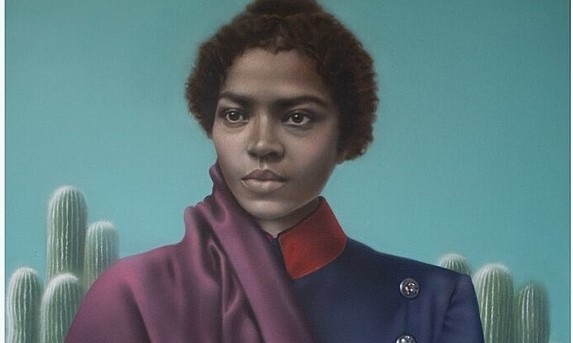As we reported in June 2021, Black people in Argentina have been treated as an invisible minority for a very long time. Portrayed as the whitest country in Latin America, the saying “Aqui no hay negros”—There are no Blacks here—has been very popular among Argentine citizens. Ironically, the key person in the fight for independence of Argentina in the 19th century was María Remedios del Valle, a Black Argentine woman.
She was known as ‘La Madre de la Patria’— The Mother of the Homeland.
María Remedios del Valle was born in 1766— 90 years before the abolishment of slavery in Argentina— in the capital of the Viceroyalty of the Río de la Plata. Although she was Black, she was born free. During her teens, she worked as a cook, but at the beginning of the wars, she found out that she could work as a nurse to help those who defended the city of Buenos Aires during the second English invasion in 1807.
She was enlisted in different battles and soon del Valle achieved the rank of captain of the liberation army due to her discipline, intelligence, courage and loyalty.
Del Valle lost her husband and two sons in combat and she sustained countless bullet and saber wounds on her body. In 1813 she was taken prisoner by the Spanish, who flogged her for nine days for helping patriot officers escape from the prison camp. Those scars lasted for the rest of her life.
She was able to escape and join the forces of Martín Miguel de Güemes and Juan Antonio Álvarez de Arenales, to once again fulfill a double role— soldier and nurse.
Once the war of independence ended in 1817, the Black Argentine woman returned to the city of Buenos Aires where she found himself destitute. As the Argentine writer and historian Carlos Ibarguren reports, after the end of the war, María Remedios del Valle was a “forgotten heroine,” like many other soldiers. She was on the streets begging for money and eating leftover food in churches because she was not awarded the pension for her military career in the army and the loss of her husband and sons.
In 1827, after being recognized by one of the generals of the army who saw her begging for coins in the streets of the Buenos Aires, Argentina, he requested the Board of Representatives of the Province of Buenos Aires grant her a pension for services rendered to the country.
She died on November 8, 1847 without having received her recognition for her contribution to the Argentine War of Independence.
For almost 150 years, historians had not given her the place she deserved alongside those committed, brave heroes and heroines who put their entire lives at the service of the country. However, over the past few years, dell Valle has started to receive recognition as one of the most important historic persons in Argentina thanks to the fight of Black Argentines.





